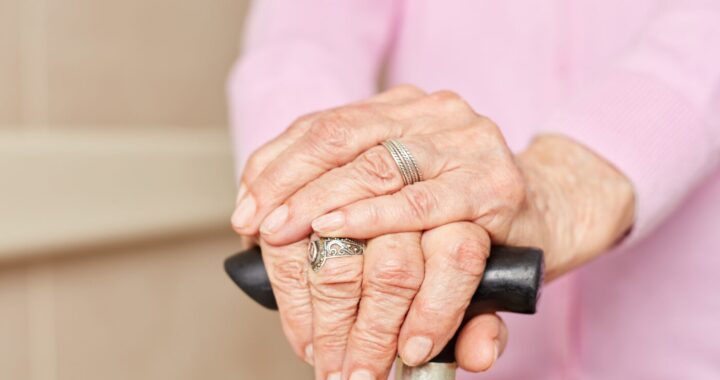
How Anxiety Disorders Affect Physical Health: A Closer Look
Anxiety is often thought of as a mental health condition, but its effects go beyond just the mind. For those who struggle with anxiety disorders, the constant worry and stress can take a toll on their physical health as well. Anxiety can lead to physical symptoms such as headaches, digestive issues, and even an increased risk of chronic health problems. Understanding the connection between anxiety and physical health can help us see the full picture of its impact and highlight the importance of managing anxiety effectively.
In this article, we’ll explore how anxiety disorders affect physical health, common symptoms, and ways to manage these effects for better overall well-being.
Anxiety Disorders and Their Physical Impact
What Are Anxiety Disorders?
Anxiety disorders are a group of mental health conditions characterized by excessive, uncontrollable worry or fear. They include disorders such as Generalized Anxiety Disorder (GAD), Panic Disorder, Social Anxiety Disorder, and Obsessive-Compulsive Disorder (OCD). While it’s natural to feel anxious in certain situations, people with anxiety disorders experience intense and prolonged anxiety that can interfere with daily life.
Anxiety disorders are one of the most common mental health issues worldwide, affecting approximately 40 million adults in the United States alone, according to the Anxiety and Depression Association of America (ADAA).
The Mind-Body Connection
Anxiety isn’t just a feeling—it’s a response triggered by the body’s fight-or-flightsystem. When we feel anxious, our brain releases stress hormones like cortisol and adrenaline to prepare us for potential danger. These hormones cause physical changes, such as increased heart rate, muscle tension, and faster breathing.
While this response can be helpful in short bursts, prolonged anxiety keeps the body in a heightened state of alertness, leading to physical wear and tear over time. This is why chronic anxiety can have long-lasting effects on physical health.
Common Physical Health Effects of Anxiety
Cardiovascular Issues
One of the most significant physical effects of chronic anxiety is its impact on the cardiovascular system. The constant release of stress hormones can lead to:
– Increased heart rate: Chronic anxiety often causes a rapid heartbeat or palpitations, which can strain the heart over time.
– High blood pressure: Prolonged stress and anxiety can raise blood pressure levels, which increases the risk of developing heart disease.
According to a study published in Circulation, people with anxiety disorders have a 48% higher risk of developing heart disease compared to those without anxiety. The study also found that anxiety increases the likelihood of heart attack and stroke, making it crucial to manage anxiety for heart health.
Digestive Problems
Anxiety can wreak havoc on the digestive system, leading to uncomfortable symptoms and conditions such as:
– Irritable Bowel Syndrome (IBS): Anxiety and IBS often go hand in hand, as stress can affect gut motility and sensitivity. Many people with anxiety experience symptoms like bloating, cramping, and diarrhea, which are common in IBS.
– Nausea and stomach aches: Anxiety can cause physical discomfort in the stomach, leading to frequent nausea and stomach aches.
The American College of Gastroenterology reports that individuals with anxiety disorders are more likely to develop gastrointestinal disorders, and managing anxiety is essential for improving digestive health.
Immune System Suppression
Chronic anxiety can weaken the immune system, making it harder for the body to fend off illnesses. High levels of cortisol over long periods suppress immune function, increasing susceptibility to colds, flu, and other infections.
A study published in Psychosomatic Medicine found that people with chronic anxiety had a30% higher chance of developing immune-related illnesses compared to those without anxiety. This means that managing anxiety isn’t just about mental well-being—it’s also about protecting the body’s natural defenses.
Muscle Tension and Pain
Anxiety often leads to muscle tension, which can cause physical pain and discomfort. People with anxiety disorders may experience:
– Tension headaches: Chronic stress can cause headaches that feel like a band tightening around the head.
– Neck and shoulder pain: Muscle tension often builds up in the neck, shoulders, and back, leading to persistent pain.
Over time, the muscle tension associated with anxiety can lead to chronic pain conditions, making it harder to relax and sleep, which only worsens anxiety symptoms. According to the National Institute of Mental Health (NIMH), anxiety is a common factor in tension headaches and chronic pain, and addressing anxiety can help alleviate these symptoms.
Sleep Disturbances
Poor sleep is a well-known side effect of anxiety, and it’s a two-way relationship. Anxiety can make it hard to fall asleep, stay asleep, or get restful sleep. On the other hand, lack of sleep can make anxiety symptoms worse. Common sleep issues associated with anxiety include:
– Insomnia: Many people with anxiety experience insomnia, where they find it hard to fall asleep or stay asleep.
– Restless sleep: Even if they manage to fall asleep, people with anxiety often wake up frequently, leading to poor-quality rest.
According to the Sleep Foundation, individuals with anxiety are more likely to experience sleep disorders, and improving sleep can help reduce anxiety symptoms. Poor sleep increases irritability and reduces focus, which can contribute to a vicious cycle of anxiety.
Managing the Physical Effects of Anxiety
Stress-Relief Techniques
To alleviate the physical effects of anxiety, stress-relief techniques can be extremely beneficial. Here are a few effective methods:
– Deep breathing exercises: Breathing exercises, such as diaphragmatic breathing, can help reduce the body’s stress response, lower heart rate, and promote relaxation.
– Progressive muscle relaxation (PMR): PMR involves tensing and relaxing each muscle group to relieve tension. It’s a simple technique that can help ease muscle pain and tension caused by anxiety.
– Mindfulness meditation: Practicing mindfulness can help reduce cortisol levels, improve focus, and ease the symptoms of anxiety.
Regular Exercise
Exercise is one of the most effective ways to manage both the mental and physical effects of anxiety. Physical activity releases endorphins, which are natural mood boosters and reduces levels of cortisol. Exercise has been shown to lower blood pressure, improve sleep quality, and reduce muscle tension, making it a powerful tool for managing anxiety.
According to the Anxiety and Depression Association of America (ADAA), just 30 minutes of moderate exercise a few times a week can significantly reduce anxiety symptoms.
Proper Nutrition
Nutrition plays a crucial role in managing anxiety and its physical effects. Eating a balanced diet rich in whole foods, lean proteins, and omega-3 fatty acids supports overall health and mood regulation. Avoiding excessive caffeine and sugar can also help prevent blood sugar crashes and jitteriness, which can trigger anxiety symptoms.
Seeking Professional Help
For individuals with anxiety disorders, seeking professional treatment can make a significant difference.

Cognitive Behavioral Therapy (CBT) is one of the most effective treatments for anxiety, helping people identify and change negative thought patterns that contribute to stress. In some cases, medication may be recommended to help manage symptoms, especially if anxiety is affecting physical health.
Conclusion
Anxiety disorders do more than affect the mind—they have a profound impact on physical health as well. From cardiovascular issues and digestive problems to weakened immunity and chronic pain, anxiety’s physical effects highlight the importance of managing mental health. Through a combination of stress-relief techniques, regular exercise, proper nutrition, and professional support, individuals can mitigate the physical toll of anxiety and improve their overall well-being.
If you or someone you know is struggling with anxiety, remember that help is available, and managing both the mental and physical effects of anxiety is possible. A holistic approach to treatment can lead to better health and a more balanced, fulfilling life.
References:
1. Anxiety and Depression Association of America. (2021). Physical Effects of Anxiety Disorders. Retrieved from [ADAA](https://adaa.org).
2. National Institute of Mental Health. (2022). Anxiety Disorders and Physical Health. Retrieved from [NIMH](https://www.nimh.nih.gov).
3. American College of Gastroenterology. (2021). Anxiety and Digestive Health. Retrieved from [ACG](https://gi.org).






